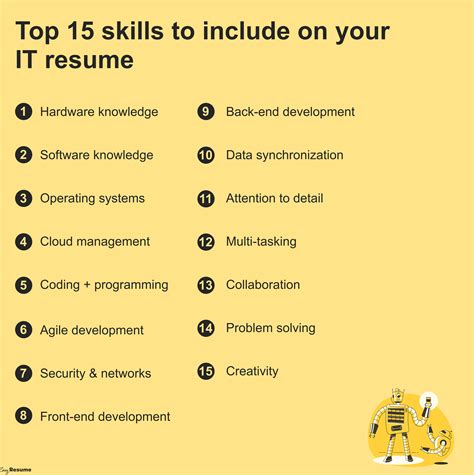In today's rapidly evolving technological landscape, having the right set of skills is crucial for success in the IT industry. While technical skills are essential, core soft tech skills are equally important for any IT professional to excel in their career. These skills enable individuals to effectively communicate, collaborate, and adapt to the ever-changing tech landscape. In this article, we will explore five essential core soft tech skills that every IT professional should possess.
1. Communication Skills

Effective communication is the backbone of any successful IT project. IT professionals need to be able to clearly articulate complex technical concepts to both technical and non-technical stakeholders. This involves being able to distill complex information into simple, easy-to-understand language, as well as being an active listener. Good communication skills also involve being able to provide constructive feedback, negotiate, and resolve conflicts in a professional manner.
To improve your communication skills, focus on:
- Practicing active listening
- Using clear and concise language
- Being approachable and open to feedback
- Developing your presentation and public speaking skills
Benefits of Good Communication Skills in Tech
- Improved collaboration and teamwork
- Enhanced customer satisfaction
- Increased productivity and efficiency
- Better conflict resolution and negotiation
2. Problem-Solving Skills

Problem-solving is a critical soft tech skill that involves identifying, analyzing, and resolving complex technical issues. IT professionals need to be able to think critically, creatively, and logically to troubleshoot and resolve problems. This involves being able to break down complex issues into manageable parts, identifying patterns and relationships, and developing effective solutions.
To improve your problem-solving skills, focus on:
- Developing a systematic approach to problem-solving
- Practicing critical thinking and analysis
- Learning from failures and setbacks
- Staying up-to-date with industry trends and best practices
Benefits of Good Problem-Solving Skills in Tech
- Improved productivity and efficiency
- Enhanced customer satisfaction
- Increased innovation and creativity
- Better risk management and mitigation
3. Time Management and Organization Skills

Effective time management and organization are essential soft tech skills that enable IT professionals to prioritize tasks, manage multiple projects, and meet deadlines. This involves being able to plan, schedule, and execute tasks efficiently, as well as being able to adapt to changing priorities and deadlines.
To improve your time management and organization skills, focus on:
- Developing a task management system
- Prioritizing tasks and focusing on high-impact activities
- Minimizing distractions and avoiding multitasking
- Regularly reviewing and adjusting your schedule
Benefits of Good Time Management and Organization Skills in Tech
- Improved productivity and efficiency
- Enhanced work-life balance
- Increased job satisfaction and reduced stress
- Better project management and delivery
4. Adaptability and Flexibility

The tech industry is constantly evolving, with new technologies, tools, and methodologies emerging all the time. IT professionals need to be able to adapt quickly to these changes, as well as being flexible and open to new ideas and approaches. This involves being able to pivot when necessary, as well as being willing to learn and acquire new skills.
To improve your adaptability and flexibility, focus on:
- Staying up-to-date with industry trends and best practices
- Being open to new ideas and approaches
- Developing a growth mindset and embracing lifelong learning
- Practicing self-reflection and self-awareness
Benefits of Good Adaptability and Flexibility Skills in Tech
- Improved innovation and creativity
- Enhanced career prospects and advancement
- Increased job satisfaction and engagement
- Better ability to manage change and uncertainty
5. Teamwork and Collaboration

Teamwork and collaboration are essential soft tech skills that enable IT professionals to work effectively with others to achieve common goals. This involves being able to build strong relationships, communicate effectively, and contribute to a positive and productive team culture.
To improve your teamwork and collaboration skills, focus on:
- Developing strong relationships with colleagues and stakeholders
- Practicing effective communication and conflict resolution
- Being open to feedback and constructive criticism
- Contributing to a positive and inclusive team culture
Benefits of Good Teamwork and Collaboration Skills in Tech
- Improved collaboration and teamwork
- Enhanced customer satisfaction
- Increased productivity and efficiency
- Better conflict resolution and negotiation





In conclusion, having the right set of core soft tech skills is essential for success in the IT industry. By focusing on developing these skills, IT professionals can improve their communication, problem-solving, time management, adaptability, and teamwork skills, leading to increased productivity, job satisfaction, and career advancement.
What are core soft tech skills?
+Core soft tech skills are non-technical skills that are essential for success in the IT industry, including communication, problem-solving, time management, adaptability, and teamwork skills.
Why are core soft tech skills important?
+Core soft tech skills are important because they enable IT professionals to effectively communicate, collaborate, and adapt to the ever-changing tech landscape, leading to increased productivity, job satisfaction, and career advancement.
How can I develop my core soft tech skills?
+You can develop your core soft tech skills by focusing on developing specific skills, such as communication, problem-solving, time management, adaptability, and teamwork skills, through practice, training, and experience.
